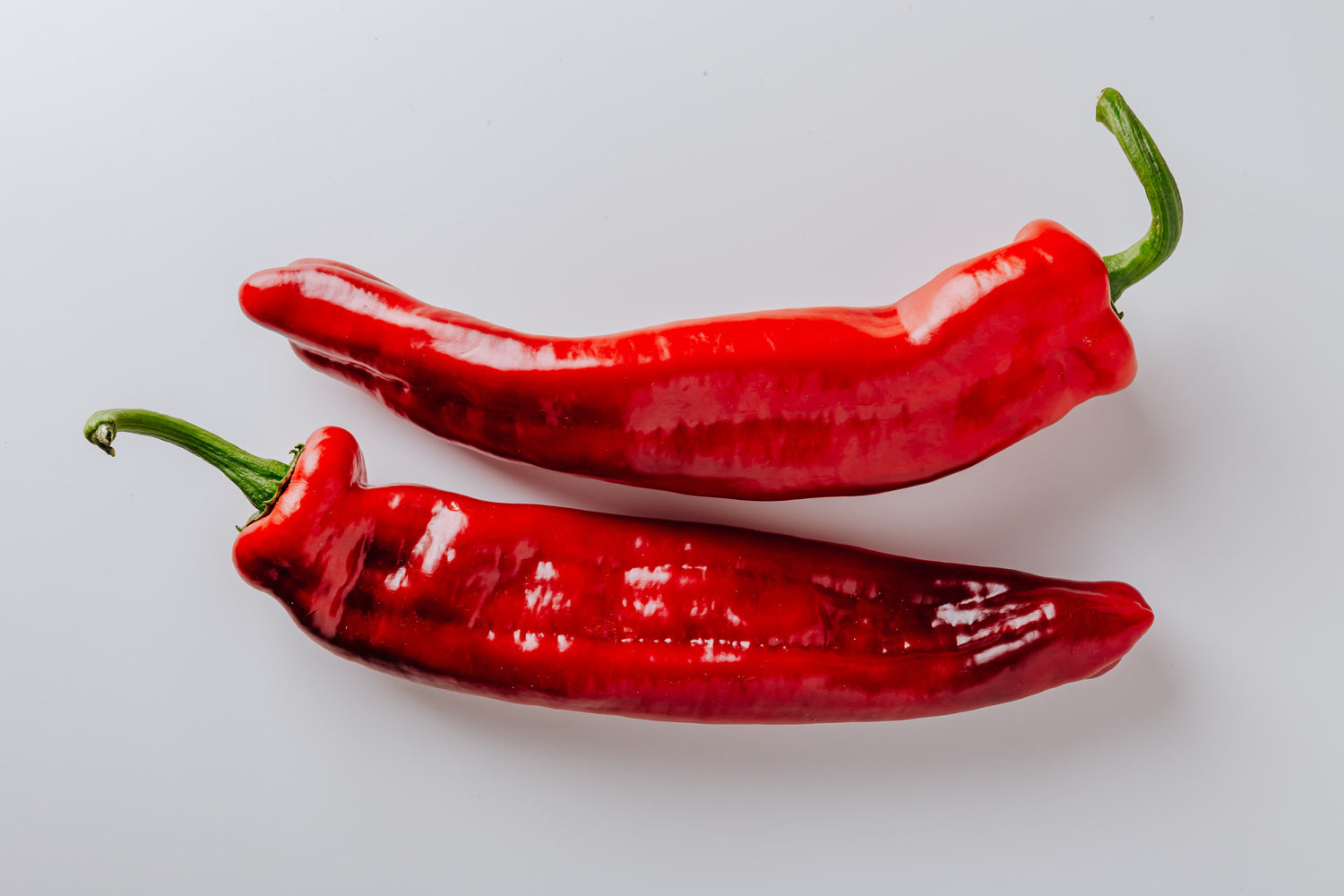Health Benefits of Chili Peppers
What are the health benefits of chili peppers?
Chili peppers offer several health benefits due to their active component, capsaicin, and other nutrients. Here are some key health benefits of chili peppers:
- Pain Relief: Capsaicin in chili peppers has analgesic properties and is often used in topical creams for pain relief, such as in arthritis or neuropathic pain.
- Weight Management: Capsaicin may help boost metabolism and reduce appetite, potentially aiding in weight management.
- Heart Health: Some studies suggest that capsaicin may help lower cholesterol levels and improve heart health by reducing inflammation and improving blood flow.
- Digestive Health: Chili peppers may help improve digestion by stimulating the production of stomach acid and promoting the growth of beneficial gut bacteria.
- Cancer Prevention: Capsaicin has been studied for its potential anticancer effects, although more research is needed to confirm its benefits.
- Anti-Inflammatory Properties: Capsaicin may help reduce inflammation, which is linked to various chronic diseases such as arthritis.
- Vitamin C: Chili peppers are a good source of vitamin C, which is important for immune function, skin health, and wound healing.
- Antioxidants: Chili peppers contain antioxidants that help protect cells from damage caused by free radicals, which may help reduce the risk of chronic diseases.
- Pain Relief: Capsaicin in chili peppers has analgesic properties and is often used in topical creams for pain relief, such as in arthritis or neuropathic pain.
- Weight Management: Capsaicin may help boost metabolism and reduce appetite, potentially aiding in weight management.
- Heart Health: Some studies suggest that capsaicin may help lower cholesterol levels and improve heart health by reducing inflammation and improving blood flow.
- Digestive Health: Chili peppers may help improve digestion by stimulating the production of stomach acid and promoting the growth of beneficial gut bacteria.
- Cancer Prevention: Capsaicin has been studied for its potential anticancer effects, although more research is needed to confirm its benefits.
- Anti-Inflammatory Properties: Capsaicin may help reduce inflammation, which is linked to various chronic diseases.
- Vitamin C: Chili peppers are a good source of vitamin C, which is important for immune function, skin health, and wound healing.
- Antioxidants: Chili peppers contain antioxidants that help protect cells from damage caused by free radicals, which may help reduce the risk of chronic diseases.
Overall, chili peppers can be a flavorful and nutritious addition to your diet, but it’s important to consume them in moderation, especially if you have a sensitive stomach or digestive issues.
What are the health risks of chili peppers?
While chili peppers offer several health benefits, they can also pose some health risks, especially when consumed in large amounts or by certain individuals. Here are some potential health risks of chili peppers:
- Digestive Issues: Chili peppers contain a compound called capsaicin, which can irritate the digestive tract and may cause symptoms like stomach pain, diarrhea, or indigestion, especially in people with sensitive stomachs or digestive disorders like irritable bowel syndrome (IBS).
- Heartburn and Acid Reflux: Capsaicin in chili peppers can relax the lower esophageal sphincter (LES), allowing stomach acid to flow back into the esophagus, leading to heartburn, acid reflux and GERD, especially in individuals prone to these conditions.
- Skin Irritation: Handling chili peppers can cause skin irritation or burning sensations, especially if you touch your eyes, nose, or other sensitive areas after handling them. It’s important to wash your hands thoroughly after handling chili peppers.
- Allergic Reactions: Some individuals may be allergic to chili peppers or capsaicin, leading to allergic reactions ranging from mild skin irritation to more severe symptoms like swelling, difficulty breathing, or anaphylaxis in rare cases.
- Drug Interactions: Capsaicin may interact with certain medications, including blood thinners like warfarin, increasing the risk of bleeding. It’s important to consult with a healthcare provider if you are taking medications and plan to consume chili peppers regularly.
- Gastrointestinal Disorders: For individuals with certain gastrointestinal disorders like gastroesophageal reflux disease (GERD), gastritis, or peptic ulcers, chili peppers may worsen symptoms and should be consumed with caution or avoided.
- Increased Risk of Bleeding: Capsaicin may increase the risk of bleeding, especially in individuals with bleeding disorders or those taking blood-thinning medications. It’s important to consume chili peppers in moderation if you are at risk of bleeding.
Overall, while chili peppers can be a flavorful and nutritious addition to your diet, it’s important to consume them in moderation and be aware of potential risks, especially if you have certain health conditions or sensitivities. If you experience severe or persistent symptoms after consuming chili peppers, seek medical attention.




